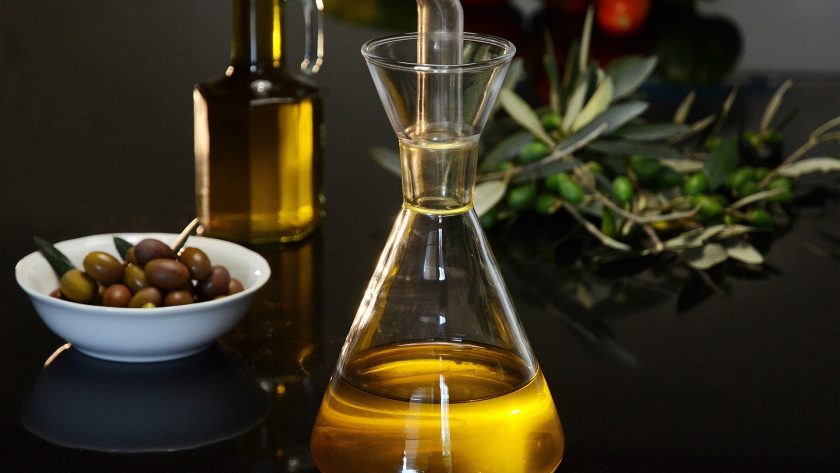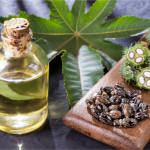When you think of ‘Oil,’ health benefits might not be the first thing that comes to mind. We got it. Generally, oils are used for deep frying, which is unarguably the most unhealthiest way of cooking. However, context matters. Some oils, such as olive oil, are associated with positive health effects due to their nutritional properties. There’s barely anyone who doesn’t know about the health benefits of olive oil, but today, we have something extra healthy for you – extra virgin olive oil.
So, now you might be thinking, what’s the difference between extra virgin olive oil vs olive oil? Well! Extra virgin olive oil (EVOO) is of the highest quality of olive oils and is subject to strict chemical and organoleptic standards, which makes it the healthiest and most flavorful of all nine grades of olive oils.
If you’re reading this blog, the chances are that you have started being health-conscious and considering changing your regular cooking oil. However, if you’re confused about whether extra virgin olive oil would be a better replacement, this guide is all you need. This write-up will uncover 10 of the most surprising yet lesser-known health benefits of extra virgin olive oil, giving you a few reasons why it can be a better replacement for your regular cooking oil.
What is Extra Virgin Olive Oil?
Extra virgin olive oil is the highest quality and most flavorful type of olive oil. Unlike its refined counterparts, it remains unheated and unprocessed, preserving its rich, grassy color and peppery taste. It is perfect for drizzling over finished dishes or dipping crusty bread into.
But what truly sets extra virgin olive oil apart is its health profile. Extracted using natural methods and rigorously standardized for purity, it boasts unique flavors and aromas.
Here’s a breakdown of its nutrient composition:
- Calories: Approximately 119 per serving
- Saturated Fat: Constitutes 14% of total calories
- Monounsaturated Fat: Dominates at 73% of total calories (primarily oleic acid)
- Polyunsaturated Fat (PUFA): Makes up 11% of total calories
- Vitamin E: Provides 13% of the Daily Value (DV)
- Vitamin K: Contributes 7% of the DV
Apart from its taste, extra virgin olive oil is a powerhouse of antioxidants. These antioxidants help relieve inflammation and chronic diseases. Notable antioxidants include oleocanthal (which has anti-inflammatory properties) and oleuropein (which shields LDL cholesterol from oxidation).
Extra Virgin Olive Oil vs Olive Oil: What’s the Difference?
Unlike extra virgin olive oil, regular olive oil is considered a lesser-quality variant. This type of oil undergoes refining processes, which include heating and chemical treatments. As a result, it possesses a more subdued taste and a paler hue and comes with a more affordable price tag.
Here’s a breakdown of different types of Olive Oil and their characteristics:
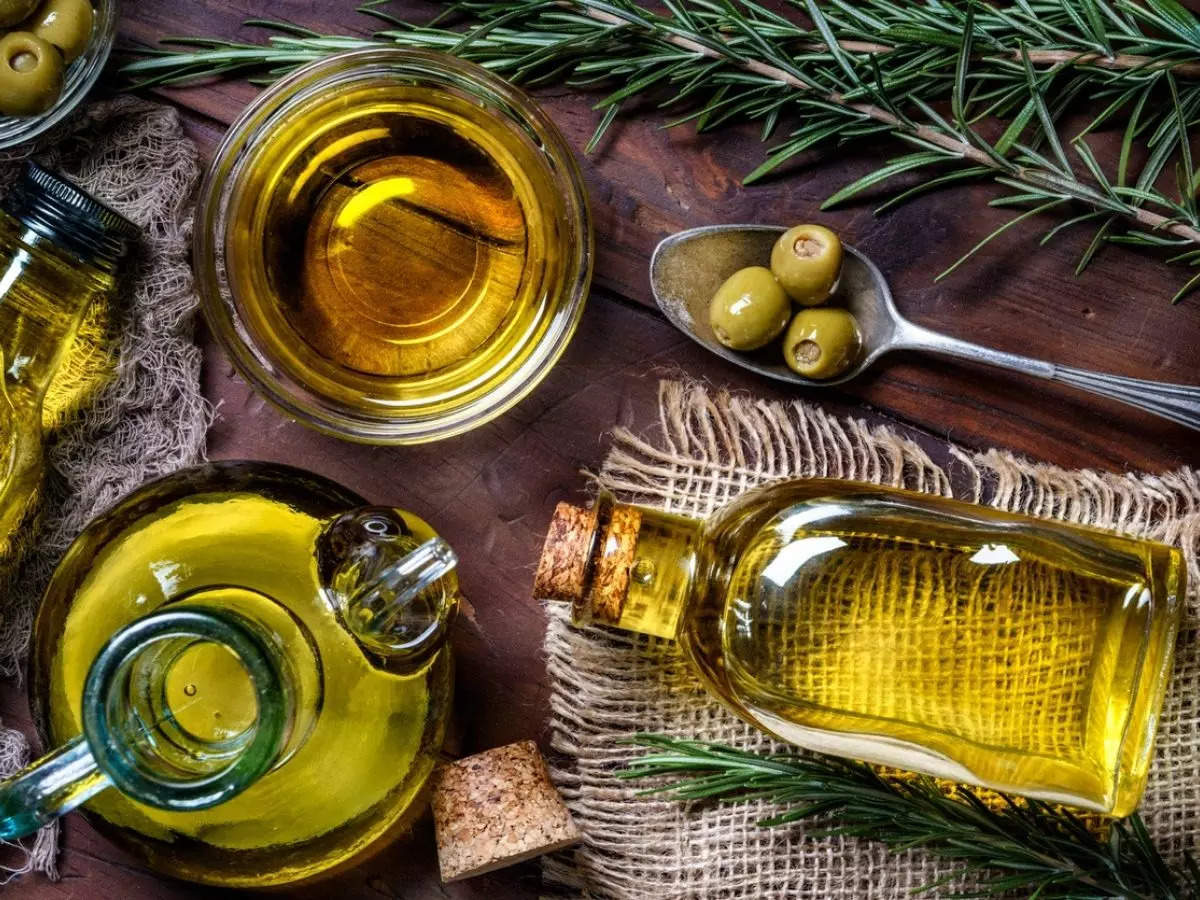
1. Extra Virgin Olive Oil (EVOO)
- Quality: EVOO is the highest grade of olive oil.
- Processing: It’s obtained through cold pressing, where ripe olives are crushed and pressed at room temperature.
- Criteria: Olive oil authorities rigorously evaluate EVOO for acidity levels and adherence to strict standards.
- Flavor: EVOO boasts robust flavor, often with fruity or peppery notes.
- Color: It tends to be golden-green.
- Heat Exposure: EVOO is never exposed to heat or chemicals.
- Price: It’s usually more expensive due to its superior quality.
2. Virgin Olive Oil
- Quality: Virgin olive oil is also high-quality but falls slightly below EVOO.
- Processing: Like EVOO, it’s cold-pressed.
- Criteria: It meets quality standards but doesn’t make the cut for extra virgin status.
- Flavor: Virgin olive oil has a milder taste compared to EVOO.
- Color: Similar to EVOO, it’s golden green.
- Heat Exposure: No exposure to heat or refining.
- Price: Generally more affordable than EVOO.
3. Regular Olive Oil (Pure Olive Oil)
- Quality: Regular olive oil is a lower grade.
- Processing: After cold pressing, there’s still oil left in the olive mash (pomace).
- Extraction: The pomace undergoes chemical extraction and heating.
- Result: What remains is labeled as plain olive oil.
- Flavor: It has a neutral taste.
- Color: Lighter in color.
- Heat Exposure: Exposed to heat during processing.
- Price: Typically the least expensive.
Extra Virgin Olive Oil Benefits
As said, Extra Virgin Olive Oil is probably one of the healthiest cooking oils available. And if you’re considering adding it to your daily diet, the following benefits will give you concrete reasons to do so:
1. Source of Antioxidants and Healthy Fats
While standard olive oil loses many nutrients through refinement, Extra Virgin Olive Oil preserves the wealth of nutrients and antioxidants from the olives.
Notably, it’s rich in over 30 types of phenolic compounds—potent antioxidants that defend against oxidative stress caused by free radicals, which are implicated in cellular harm, diseases, and aging.
The oil’s fat profile is predominantly monounsaturated fat, about 73%, which is linked to heart health and is a cornerstone of the Mediterranean diet.
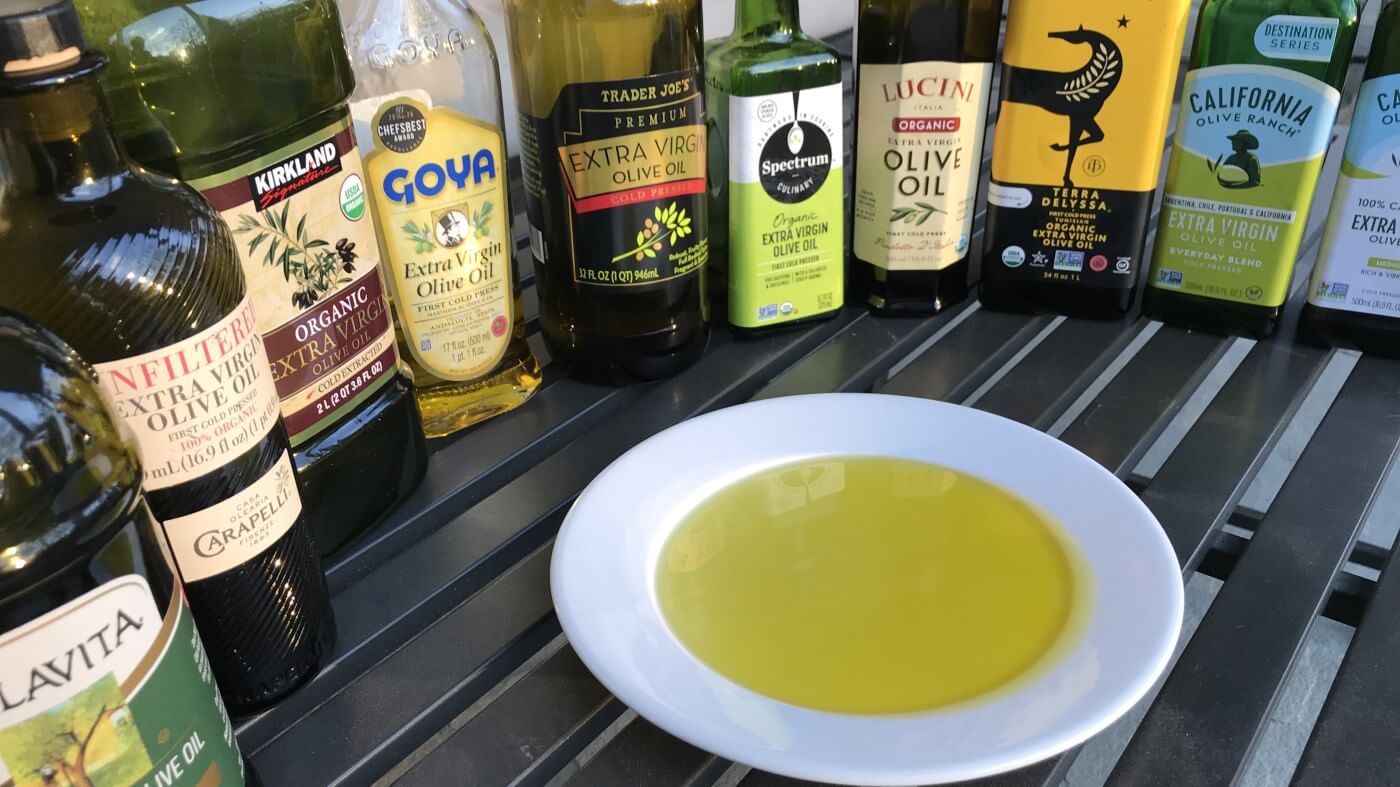
2. Help Reduce Your Risk of Heart Disease
Heart disease claims more lives prematurely than any other condition globally. However, Mediterranean populations exhibit lower mortality rates from heart disease, which is partially credited to their substantial intake of Extra Virgin Olive Oil.
The oil’s bioactive compounds offer robust protection for the heart, aiding in blood pressure reduction and preventing arterial hardening.
A comprehensive review involving over 840,000 individuals revealed that high olive oil consumption correlated with a 9% decrease in heart problems and an 11% reduction in early mortality compared to low consumption.
3. Protect Against Stroke
Stroke ranks as the second leading cause of death, closely associated with heart disease and sharing common risk factors like elevated cholesterol and hypertension.
Research, including a notable study from France, indicates that high consumption of olive oil can slash stroke risk by 41%.
This correlation is likely due to the substitution of olive oil for unhealthy fats, coupled with its rich antioxidant and monounsaturated fat profile, which collectively bolster cardiovascular health.
4. Help Lower Your Risk of Type 2 Diabetes
In the United States, type 2 diabetes affects approximately one million individuals. This condition is marked by insulin’s diminished ability to regulate blood sugar levels.
The phenolic content in Extra Virgin Olive Oil is believed to enhance glucose metabolism and insulin sensitivity. Comprehensive studies suggest that incorporating olive oil into one’s daily regimen can cut the risk of developing type 2 diabetes by 13%.
Moreover, diets rich in olive oil have been shown to stabilize blood sugar levels in those already diagnosed with the condition.
5. Best Cooking Oil
Amidst the myriad of oils vying for the title of ‘best cooking oil’, Extra Virgin Olive Oil stands out. Its superior oxidative stability and high monounsaturated fat content make it ideal for high-temperature cooking.
While virgin coconut oil is stable due to its saturated fats, it lacks antioxidants. In contrast, Extra Virgin Olive Oil is abundant in antioxidants like tocopherols and hydroxytyrosol, which are beneficial for long-term heart health.
6. More Nutritious
If you’re still weighing whether Extra Virgin Olive Oil should be your go-to for cooking, consider this: it can boost your meal’s nutritional value. Its antioxidants withstand high temperatures without breaking down, transferring their benefits to the food.
Moreover, it aids in preserving nutrients typically lost during cooking. For instance, cooking broccoli in Extra Virgin Olive Oil maintains its vitamin C content, unlike when using sunflower or refined olive oil.
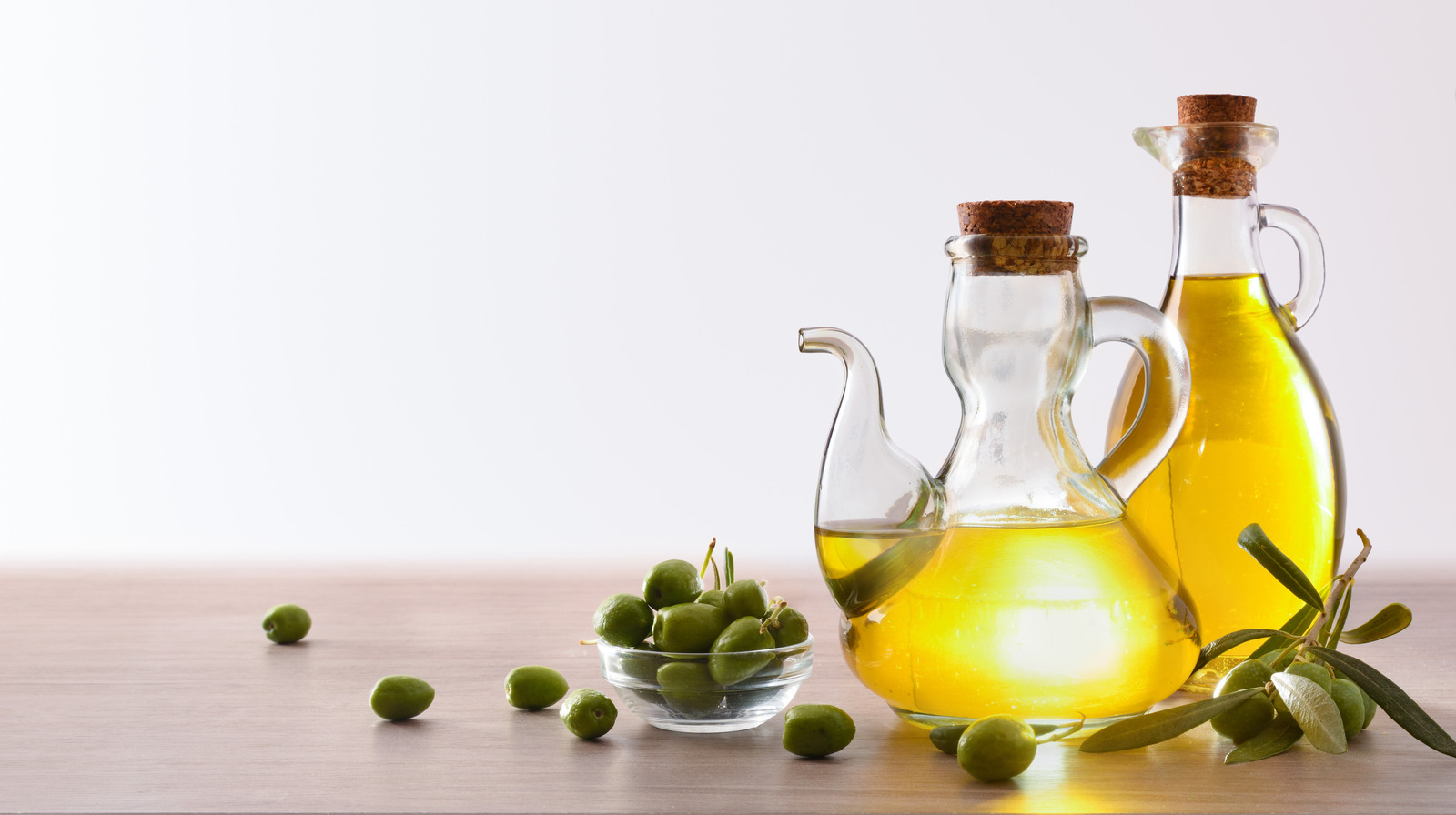
7. Improve Bone Health
Consuming olive oil, particularly those rich in polyphenols like Extra Virgin Olive Oil, may help prevent bone loss associated with aging. Studies in both animals and humans suggest that olive oil can inhibit the breakdown of calcium and stimulate bone formation.
A recent study involving 870 participants found that those who consumed the highest amounts of Extra Virgin Olive Oil had a 51% lower risk of bone fractures. While this is an encouraging finding, more research is needed to confirm these results, as most human studies have been relatively small.
Emerging evidence suggests that polyphenols and olive oil consumption may reduce the risk of bone loss in older adults. Further research is necessary to establish this conclusively.
8. Potential Cancer Prevention
Dietary choices can significantly impact cancer risk, and research has shown that regions with high olive oil consumption tend to have lower cancer rates.
A comprehensive analysis of 19 previous studies found that individuals with higher olive oil consumption had a lower risk of breast cancer and digestive system cancers. The exact mechanisms behind this are unclear, but researchers believe that the unique antioxidant oleocanthal, found only in Extra Virgin Olive Oil, may play a protective role. While we cannot confirm that Extra Virgin Olive Oil has anti-cancer properties, the early findings are promising, suggesting that it may potentially protect against certain cancers.
9. Good for Brain Health
Olive oil, particularly extra virgin olive oil, has shown promising potential in reducing the risk of Alzheimer’s disease and age-related dementia. The phenolic compounds found in extra virgin olive oil may help clear the harmful compounds that contribute to brain degeneration.
One study compared the effects of an extra virgin olive oil-enriched Mediterranean diet with a standard low-fat diet. After a 6.5-year follow-up, the participants on the extra virgin olive oil diet experienced less cognitive decline, indicating better brain function and memory preservation.
While more research is needed to confirm these benefits, the early evidence suggests that a diet high in extra virgin olive oil may help inhibit the processes responsible for Alzheimer’s disease and dementia.
10. Promotes Longevity
Regions with higher extra virgin olive oil consumption tend to have populations with longer lifespans. A large epidemiological study followed over 40,000 Spanish subjects for 13.5 years and found that those with the highest olive oil intake were significantly less likely to die prematurely compared to those who consumed the least amount.
It’s noteworthy that two of the places where people live the longest, Icaria and Sardinia, have residents who consume a diet rich in extra virgin olive oil. Observational studies consistently show that individuals who eat a diet high in extra virgin olive oil tend to live longer.
Olive oil’s potential longevity benefits may be attributed to its anti-inflammatory properties, ability to improve cardiovascular health, and positive effects on brain function, among other mechanisms. While more research is needed, the existing evidence suggests that incorporating extra virgin olive oil into one’s diet could be a simple yet effective way to support healthy aging and longevity.
What is the Proper Way to Eat Olive Oil?
Indeed, you might choose to consume olive oil straight, but why not make it a staple in your culinary routine? Extra Virgin Olive Oil (EVOO) can enhance the culinary experience with its rich flavor.
Here’s how you can add EVOO to your daily meals:
- Swap out seed oils and animal-based fats like butter and mayonnaise with EVOO.
- Use it as a dressing over salads instead of store-bought dressings.
- Enrich your cooked vegetables or pasta with a splash of EVOO.
- Dip multigrain bread into EVOO for a simple yet delicious treat.
While EVOO can be used for baking, its robust flavor might not suit everyone’s taste, especially for sweets. Light olive oil is a good alternative for those who prefer a subtler flavor, though it has fewer antioxidants due to its refining process.
Conclusion
Extra Virgin Olive Oil (EVOO) is full of health benefits. Its ability to combat inflammation, act as a natural pain reliever, and even protect bone density are just a few of the remarkable attributes that make it a superfood.
The monounsaturated fats in EVOO play a crucial role in balancing cholesterol levels and safeguarding heart health, while its antioxidants offer a shield against chronic diseases. Adding EVOO to your diet is more than a taste preference; it’s a commitment to a healthier lifestyle.
FAQs
Can You Cook With Extra Virgin Olive Oil?
Yes, you can cook with Extra Virgin Olive Oil (EVOO). It’s suitable for a variety of cooking methods, including sautéing and baking, due to its moderate-to-high smoke point and abundance of heat-stable monounsaturated fats.
What Is Extra Virgin Olive Oil Smoke Point?
The smoke point of EVOO varies but generally ranges between 350°F to 410°F. This makes it versatile for most cooking methods, although it’s better to avoid extremely high-temperature cooking.
What Is Extra Virgin Olive Oil Good For?
EVOO is renowned for its health benefits, including heart-healthy monounsaturated fats, antioxidants, and anti-inflammatory properties. It’s linked to improved heart health and reduced inflammation and may even help prevent strokes and certain types of cancer.
Can I Use Extra Virgin Olive Oil For Cooking?
Absolutely, EVOO is a great choice for cooking. Its rich flavor and health-promoting properties make it ideal for everyday culinary use, from dressings to frying, as long as the temperature is kept within its smoke point range.
